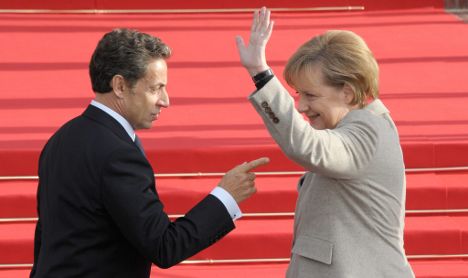The German government is playing for time in its promotion of a plan to make private investors – often banks – swap the Greek national debt they hold for new seven-year bonds. The idea has been deemed a step too far by the European Central Bank (ECB) and other European governments, notably France.
They want to offer private holders of Greek bonds the option of voluntarily reinvesting the profits they make from Greek bonds in the country. France in particular is concerned that a number of its top banks are very badly exposed to Greek debt, and are themselves suffering in ratings as a result. The idea of forcing private investors to take part in the rescue package is thus unpopular in France, according to Der Spiegel.
The ECB sees the state debt crisis as the greatest danger to the European financial system and warned in its financial stability report on Wednesday that it could be damaged by the continuing problems.
“Any solution must be voluntary enough that a state insolvency or a non-payment rating can be avoided,” said ECB Vice President Vitor Constancio in Frankfurt.
He said that currently the risk of such a financial disaster was limited to Greece, Ireland and Portugal as far as the markets were concerned. This could no longer be guaranteed if a country were to go bankrupt, he said, according to Der Spiegel.
The worry is, the magazine reported, that any intimation of forcing investors to keep their money in the bonds could lead to rating agencies saying that Greece was unable to pay its debts, which could lead to incalculable chain reactions on the finance markets. This could result in a dramatic loss in value of Greek debt, billions of euros worth of which the ECB is holding.
The Handelsblatt daily reported on Thursday that although there was a row of top-rank European meetings scheduled for the next week or so, a decision could be delayed until July. A special meeting of eurozone finance ministers is planned for Sunday while European Union leaders meet in a summit next Friday, where at least a basic declaration should be released on what should be done for Greece.
But Germany would like to put off making a decision on the second European aid package for Greece until September, essentially admitting the EU is unable to act now.
“The argument is – we want to buy time because we don’t know what we should do,” an EU diplomat familiar with the issue told the paper.
EU Currency Commissioner Olli Rehn has suggested the Greek rescue package be split into two parts, with the release of the next tranche of €12 billion in credit on Sunday. An agreement for a longer-term could then be made in July.
“This way we prevent a credit collapse scenario and ease the way for agreement on a mid-term strategy,” he told the Handelsblatt.
The Local/hc



 Please whitelist us to continue reading.
Please whitelist us to continue reading.
Member comments